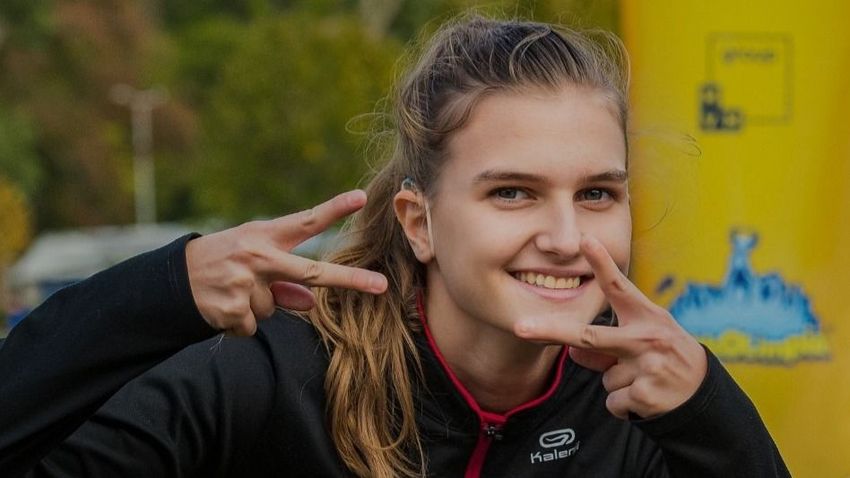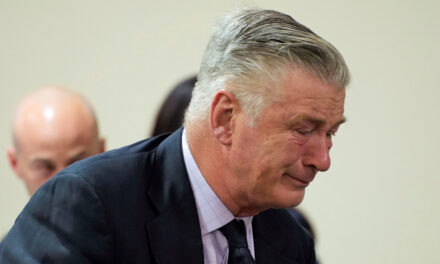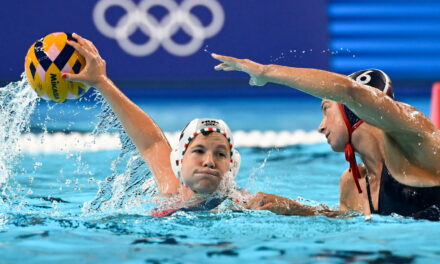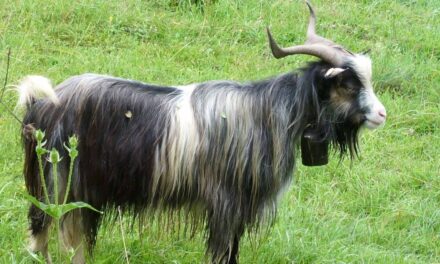"I really believe that nothing is impossible," admits Nikolett Gál, who won the 100 hurdles with a continental record at the European Deaf and Hard of Hearing Championships. An empowering story about how sport really belongs to everyone!
It can be heart-wrenchingly difficult to face the reality when parents realize that their one-year-old daughter cannot hear anything from the sounds of the outside world. No noise, no jingle, no lovely cooing, nothing really.
"Unfortunately, this happened in Niki's case as well, when it turned out that our little girl was not inattentive, but deaf, around the age of one."
- the mother, Zsuzsa Gálné Egri, begins to relive the story from 18 years ago, who said that during the gaping era, she began to suspect that something was wrong with Niki.
The results of the first examinations were shocking, when at the age of 16 months they declared that Niki could not hear anything in the world and was actually deaf.
When a person feels that something has been taken from him and from us,
but we started on the path that gave us hope that the world would not be completely closed to him," says the mother.
"He received the first high-performance hearing aid, which of course had to be used together with the fittings" -
says the father, Tamás Gál, who continues by saying that the little girl was two and a half years old when Niki was allowed to go on the operating table for the first time - amid great excitement - to receive the first so-called implant,
so that the pace of speech understanding and sound formation can accelerate compared to the initial results.
Niki's hearing began to develop slowly: she had difficulty identifying high-pitched sounds and human speech, which is why the parents decided on the implant. "Niki's problem was that the cochlea and hair cells in the inner ear died and were damaged. Although the sound entered, it was not transformed into a stimulus, i.e. the auditory experience was not created.
An electrode was placed in the inner ear, and a signal-receiving device had to be installed in the skull bone, a small cavity was drilled there,
and the external unit became the microphone and the processor, which transforms the sound into stimulation, which then reaches the auditory nerve to create the hearing experience. Obviously, all this on both sides. The internal unit built into the skull bone also has a magnetic part, and the external unit is also attached to it with a magnet," the mother details the phases of the not-at-all-risk-free interventions.
"When we got through these operations, we never thought that due to multiple malfunctions of the internal unit, a total of eight ear and skull bone surgeries would be waiting for our little girl, I wouldn't wish that on any parent, and certainly not on any child," details the family's ordeal, Zsuzsa adds that
"actually, the strength given by Niki's close attention,
and it showed more and more progress, which encouraged us to find the best possible solution."
The combination of the built-in implant and the hearing aid placed in the outer ear helped Gál Nikolett a lot, who became more and more skilled at lip-reading and started kindergarten and school among the healthy and hearing. Many times at the parent meetings, when the parents mentioned the little girl's hearing problems, they looked at them in amazement, since most of them hardly noticed the little girl's difficulties.
Many sleepless nights were behind me, as I was already worried about putting our little girl to sleep. And what they sign with a parent in this case, I'd rather not even get into that!"
– the mother points out the most soul-destroying moments of the entire journey so far, those that must be done in such a way that the person concerned does not notice anything about it.
"I always felt at home among the audience, and I remember that in first and second grade they wanted to keep me among the basketball players, but I wanted to run," Gál Nikolett tells Mandiner about the beginnings of his own sports career.
"I will never forget that even as a baby, if you had to walk, you always asked to be held, if you could run, you ran with joy"
adds Tamás Gál.
Gál Nikolett, who confidently competed and became adult European champion in the 100-meter hurdles
At the European Deaf Athletics Championships held in Szczecin, Poland, he talks about his experiences in such a way that during the telephone interview nothing can be perceived that he ever had problems with hearing or speaking. Nikolett was born in Miskolc, is an athlete of the DVTK and has been preparing for a long time with his coach, Gergelly Majkut, for some kind of breakthrough result. With her run of 14.54 seconds in Szczecin (her personal best is 14.42 anyway), at the age of only 19, she ran a new European Championship record among adults in the final of the women's 100 hurdles. He also won three more silver medals in the long jump, 100 and 200 meters in the U20 field.
"I think we are out of the long ups and downs! In the nearly ten years since we have been working with Niki, I felt the most focused in the competition. Already during the warm-up, it was clear that he was determined, but not presumptuous, that he really wanted to, but still managed to remain relaxed. These are the things you need to race well"
- admits Gergely Majkut, Niki's master, who referred to a low point due to a prolonged knee injury when he mentioned ups and downs.
Niki started athletics at the age of ten, because he was a very active child: he was interested in everything in which he could test his speed and skill. It became clear very soon that Niki's physical abilities really made her for athletics, and since she did not feel any disadvantage in these numbers due to her hearing difficulties, she was able to improve without interruption.
The young lady, who has now successfully graduated, started the sports organization course at the University of Miskolc this fall.
- of course - among hearing classmates.
"When we are training, I run with a hearing aid, but when we arrive at, say, a world event like the European Championships in Szczecin, we have to take off the hearing aid when we arrive at the stadium, I can't even take it into the call room because they disqualify me,
so in this case you have to run deaf.
I must admit, this is very strange, because in this case I don't even hear the starting gun, but we start with a light start, which of course also reduces the reaction time, because the detection is thus slower than when I start at the starting gun. I live in such a way that I can hear everything these days, but in such cases I have to read the instructions by mouth, so of course my speech is not so clear, they say. It's also very unusual for me that instead of clapping, there are cheerleaders sitting in the stands who raise their hands and turn them left and right, because for the deaf, this represents applause," says Nikolett. Among the listeners, he often competes in athletics competitions in his age group, and he recently had the opportunity to try his hand at the adult national championships at the National Athletics Center, which hosts the World Athletics Championships. "The track is fantastic and very fast in the NAK," says Nikolett about the world-famous Mundo covered track, which was praised by the world's most famous athletes during the World Cup in Budapest.
In 2021, Gál Nikolett won a bronze medal in the 100 hurdles at the World Championships for the Hearing Impaired, also in Poland, and his biggest goal is to achieve a resounding result at the upcoming Deaf Olympics in Tokyo in 2025.
"This is my main number, this is where I really feel that I can get the most out of myself, 12.69 in the 100 flat is my personal best for now; but I feel that I still have plenty of reserves in me.
I am nineteen years old and I really believe that nothing is impossible.
Next year, I will do my best to improve my best time, as I was included in the U20 national team this year among the healthy ones. I would like to achieve the best possible results in athletics, because I feel that success here depends only on me," says the young university student, who is believed to be able to overcome his reticence in civilian life due to his hearing aid.
"If his self-confidence is strengthened due to his successes in sports, then this will affect his civilian life as well, and of course sports will also do better, we can see this now," sums up Nikolett's mother, who also quietly adds:
the Good Lord compensated us for the pain and gave our little girl talent in something else!"
Zsuzsa Csisztu / Mandiner













